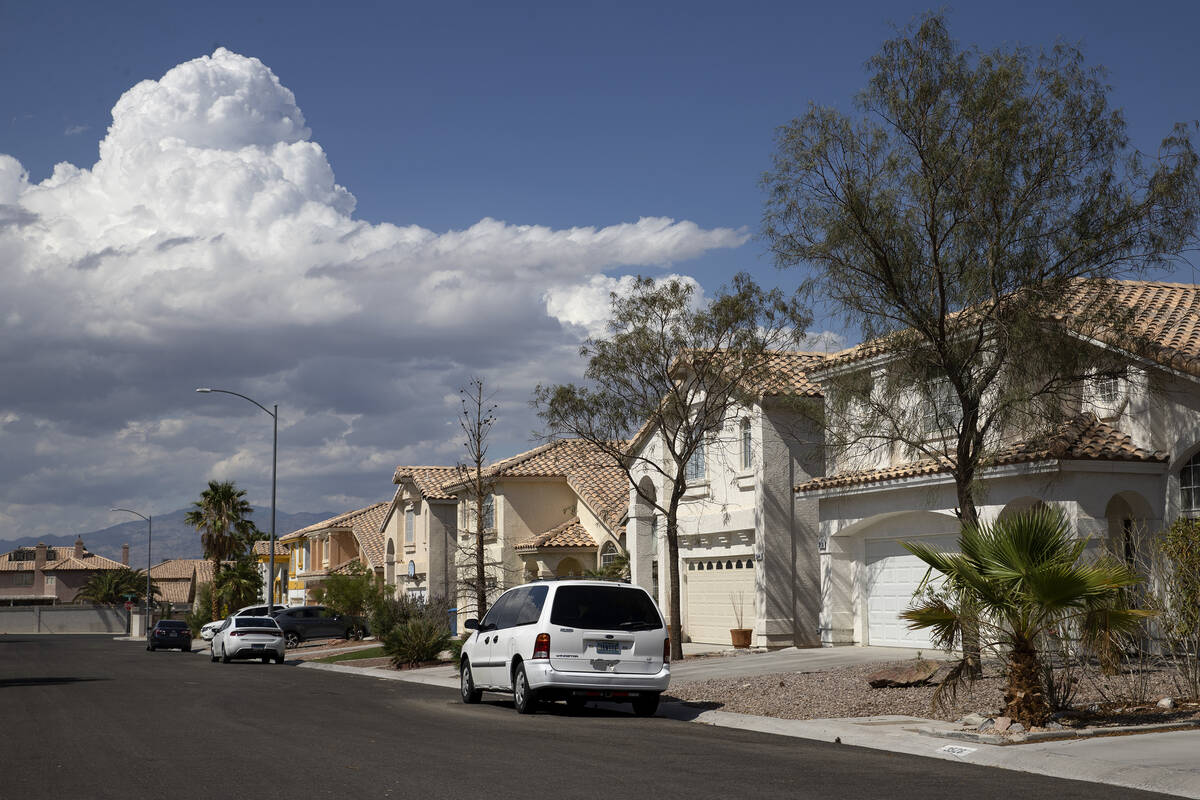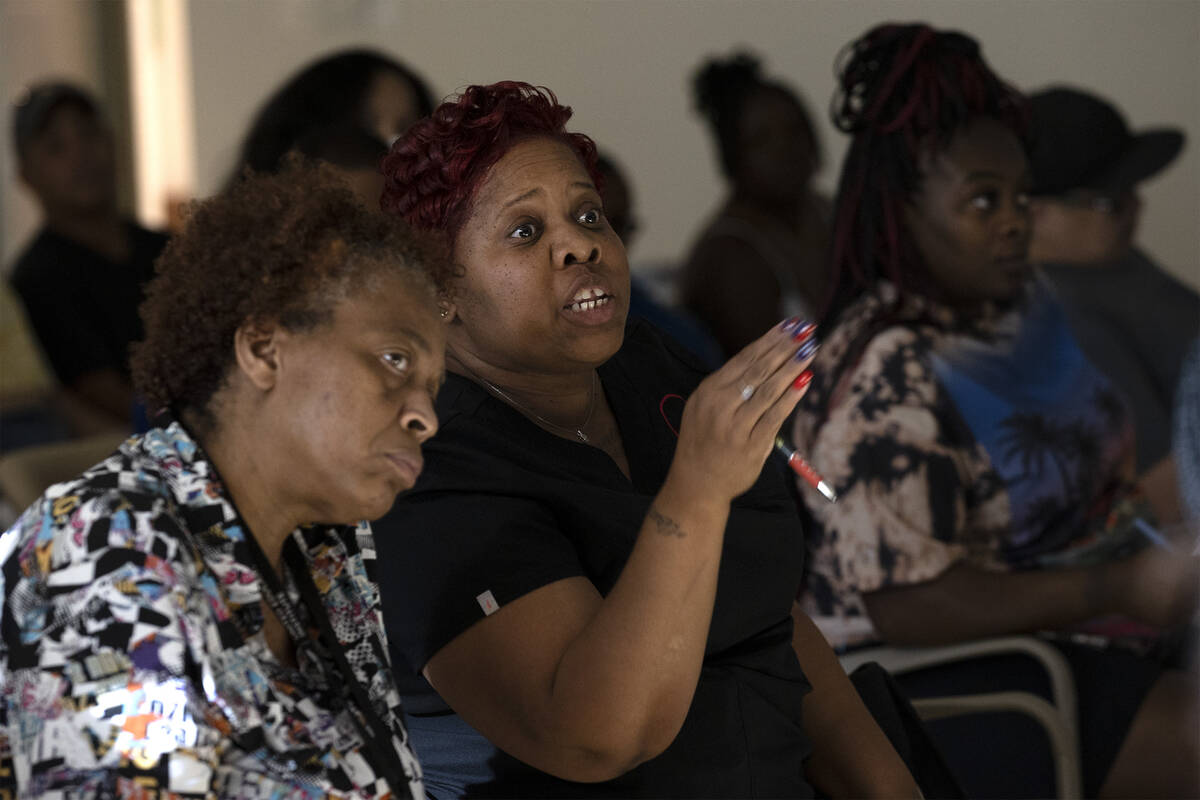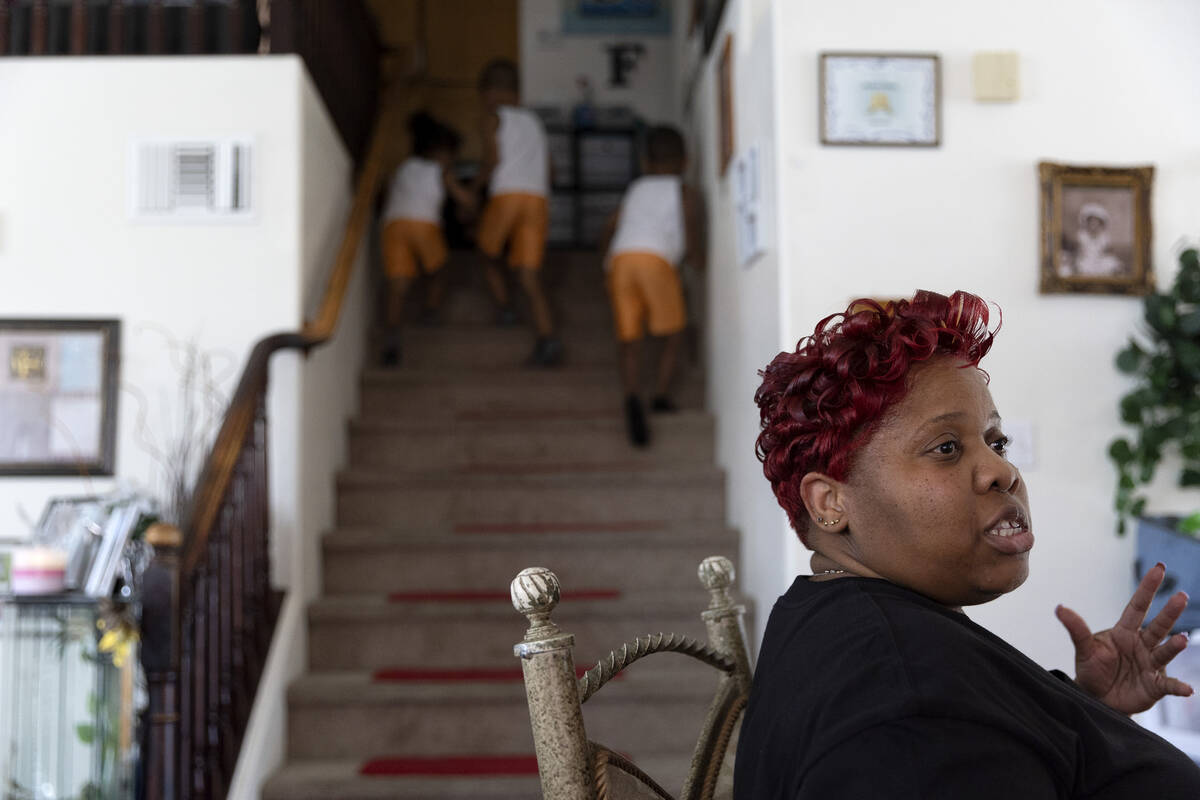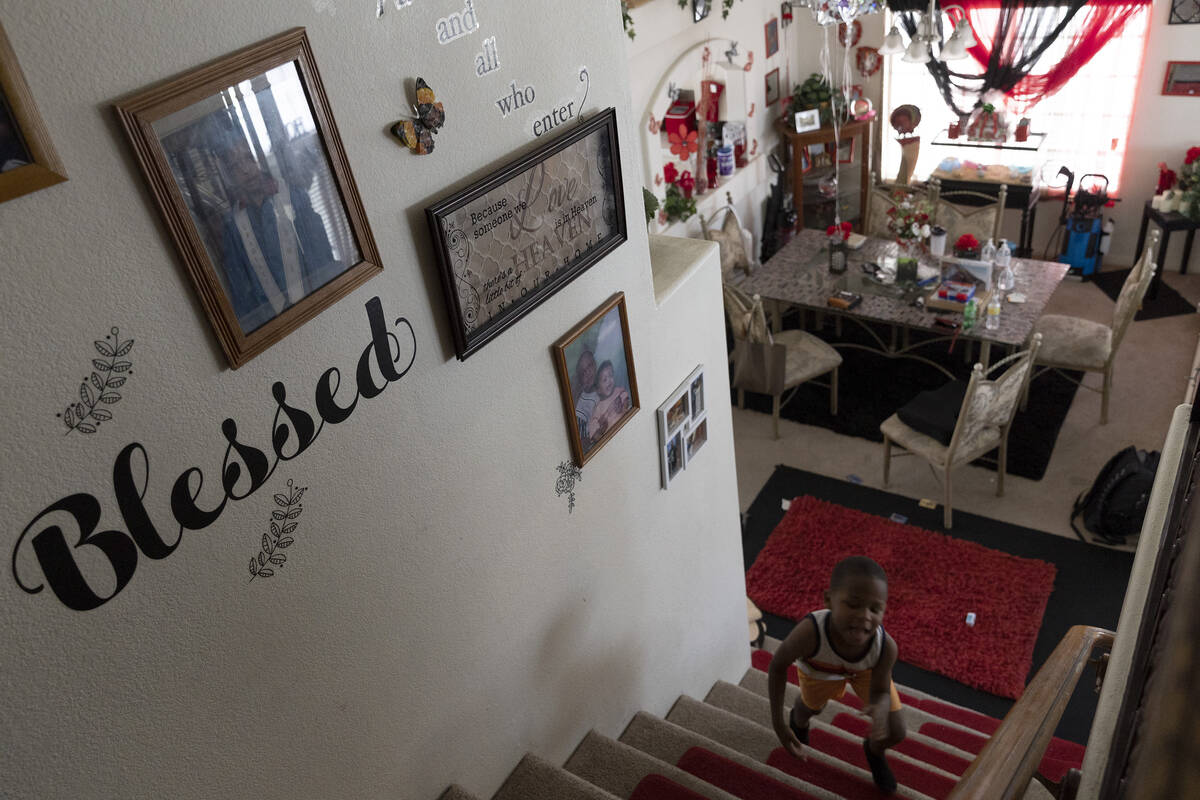Las Vegas suspends displacement plans for families after HUD intervention
The federal government asked the city of Las Vegas to immediately halt plans to displace tenants of a long-term rental program, the Review-Journal has learned.
The new directive was announced to residents of 61 homes in letters received Wednesday, and followed the news organization’s story about the closing of the Neighborhood Stabilization Program, a grant program established in 2008 following the housing crisis.
The letter stated the change was due to “actions from the Regional Office of the Department of Housing and Urban Development (HUD)” and came from an outside public affairs firm hired in January by the city to handle relocation efforts.
The story highlighted residents who feared housing insecurity and complained of poor communication surrounding the city’s announced sale of the homes by the end of the year.
City spokesman Jace Radke confirmed HUD’s request and said residents would remain at the homes pending a “review” from the federal agency.
The city had just published a blog post on Aug. 11 detailing the program closure. The post stated it would not result in evictions and residents would receive assistance, including cash payouts in line with federal regulations.
Tenants received word in mid-May that the city had been authorized by the Department of Housing and Urban Development to sell the homes. The letter informed them of their rights as “displaced” persons and said they may be eligible for relocation benefits.
Tenant Ursulia Christmas, who was featured in the story, said she was “very happy” with the development.
“I appreciate everybody that was fighting for us, because let me tell you, it’s hard out here.”
Christmas said she had been worried about the lives of her six children, three of whom are adopted, being upended.
“I appreciate it; I really do,” she added.
Another resident, Timesha McCullah, found out about the news through email.
“I’m excited, not having to worry about having to find somewhere to move to,” she said, citing the housing crisis.
She said the uncertainty had filled her and other tenants with stress and anxiety, and while she does not know what’s next, or if officials will resume efforts to relocate tenants, she’s relieved.
“Having that security of a roof over me and my children, I’m thankful,” she said.
In a statement, HUD public affairs specialist Andrew Ten said the agency “received questions about the city’s program and advised the city to suspend action pending review and assurances of compliance with program requirements.”
Del Richardson & Associates, the firm hired to manage the families’ relocation, did not immediately respond to emails seeking comment. Wednesday’s letter said that the Southern Nevada Housing Authority will continue to manage the properties.
Clark County Commissioner William McCurdy II, who serves as vice chair of the housing authority board, said Thursday that he did not have prior knowledge of the new development and was monitoring it. He added that county resources were still available for residents seeking a more permanent solution.
Las Vegas received more than $25 million in NSP funds, records show. Some of that funding went toward helping families purchase abandoned or foreclosed homes, according to Review-Journal stories. But roughly 55 percent of the grant award was used to purchase long-term rental units for lower-income families.
At the program’s height between 2010 and 2012, Las Vegas owned more than a hundred rental properties. Most were located between Tule Springs and Summerlin South — ZIP codes with the highest rate of foreclosure at the time.
Las Vegas residents said the NSP gave them a chance to elevate themselves financially while boosting their quality of life. And before this year, homes were only sold after the tenants moved out voluntarily, said Kathi Thomas-Gibson, director of Community Services for the city. The city was in the process of selling the final 61 homes.
The city of Las Vegas had purchased and rented out hundreds of homes as part of the program, which started in response to the housing bubble bust and financial fallout. In three installments, NSP allocated nearly $7 billion in total to cities and nonprofits nationwide.
Funds could be used for activities including rehabilitating abandoned or foreclosed homes, demolishing blighted properties, redeveloping neighborhoods or providing down payment assistance. But cities had discretion over how they invested the money.
While residents had not been given a specific moving timeline, the city hired DRA to manage the families’ relocation and had said the proposed deadline for NSP closeout was Dec. 31. DRA also sent the notice Wednesday informing residents that relocation services were suspended.
“DRA will continue to offer housing advisory services at no cost to any household who may still be interested,” the letter reads.
Contact Ricardo Torres-Cortez at rtorres@reviewjournal.com. Follow @rickytwrites on Twitter. Teghan Simonton is a former reporting intern for the Review-Journal. Follow @teghan_simonton on Twitter.

























